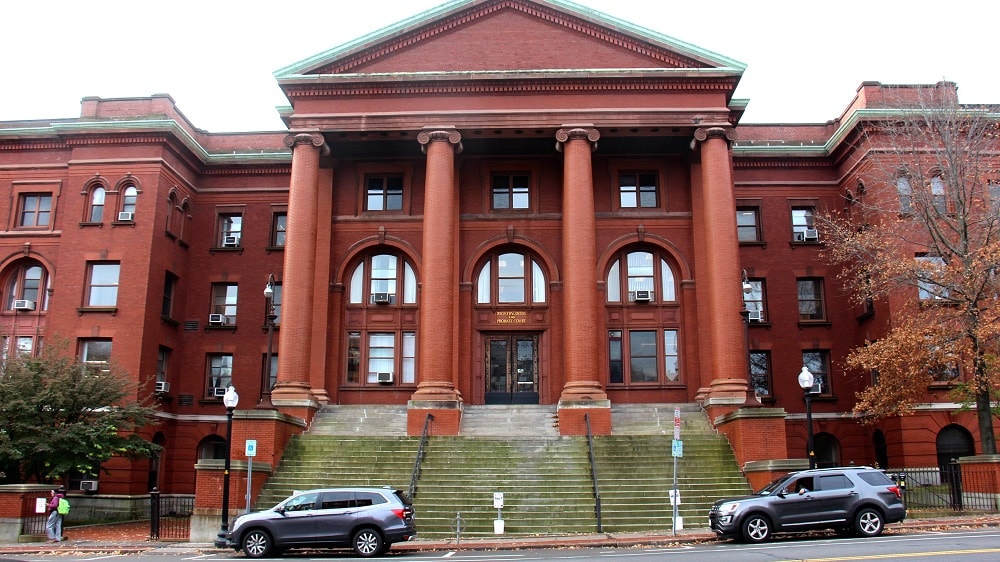1. A Baffled Defendant in Middlesex County Probate and Family Court
By Gang Xu, Ph.D.
December 6, 2019 | Updated May 26, 2020
December 6, 2019 | Updated May 26, 2020
|
For a whole year from 2016 to 2017, I was put through a contested divorce. From the very beginning, I was accused of various domestic abuses. The allegations were either self-contradictory within the same court filing or inconsistent with documented communications, such as the emails among the involved parties before the onset of the legal battle.
I thought I could easily disapprove those charges by pointing out the absurdity of some claims and, if needed, by pulling out documented evidence. Plus my marriage was so short-lived, lasting actually only ten and a half months, and I had not seen much really worthy of a fight. I thought I could do the divorce myself without hiring a lawyer. I believed a court was a solemn place, respecting “the truth, the whole truth and nothing but the truth.” I also held to the notion that credibility matters in a court: false in one, false in all. But the reality soon shattered my naiveté: the judge did not care about the truth; the judge did not care about the credibility; and the judge did not care about the impartiality. In my first divorce hearing on August 17, 2016, Judge Maureen Monks at Middlesex County Probate and Family Court issued a restraining order (RO) against me on behalf of now-ex-wife’s daughter, even though the complaint was filed just before the hearing, even though just a little while earlier she had bluntly refused to hear my complaint for a RO against the other party, on the ground that I submitted the complaint in the morning and had not given the other party advance notice. In spite of that, I accepted the judge’s ruling, as she promised me to revisit the allegation that was based on ex-wife’s daughter’s translation of my email sent to her in Mandarin, which was claimed to contain the death threats. To revisit the accusation in the next RO hearing on December 8, 2016, Judge Maureen Monks also instructed the court to order a Mandarin interpreter. During the hearing, I learned there was another RO against me, at Malden District Court, on behalf of my ex-wife, and scheduled for next hearing in January, 2017. I was fully baffled: What was that and how could I know nothing about it at all? So, I started to search for an attorney. I identified two, both rated among “The 10 Best Divorce Lawyers in Boston” by some Boston media outlet and one specializing in cases involving allegation of domestic violence (DV). On my call log on September 1, 2016, I first called the DV expert at 10:55 am. I told her office assistant that I would like to make an appointment with the attorney or get a consultation; I would pay for the meeting. Her assistant assured me that she was in town and available. After having my name, the assistant asked me three questions: 1) in which court my case was filed; 2) who was the judge for my case; 3) who was the attorney for the other party. Clearly she was neither interested in my story nor in the name of the other party or plaintiff; she stopped me from trying to offer more information or brief my case. She told me she was going to “run a conflict” and get back to me soon. Then at 11:18 am, I called the other attorney’s law firm. His office assistant essentially asked for the same information; she also cited the phrase “run a conflict” for her questions. But she was more empathetic and gave me a few minutes to utter my concerns. In the afternoon at 4:08 pm, she called back. She told me that the attorney I tried to reach wouldn’t be able to look into my case; he referred me to his partner in the same law firm, who specialized in property division. Since I did not have that need, I thanked the assistant and finished the conversation. The first law firm I contacted never got back to me. I was puzzled. I had thought that I could at least get some expert advice if I were to pay them for their time and opinions. But I was wrong. A few months later, after going through quite some ordeal, I came across a finding from another online search, I became jaw-dropping, and I believed I had finally found an answer to my puzzle, or an independent insider had boldly confirmed my deepening suspicion. It is now on the website of a law firm. On its “Practice Areas,” The Lungo-Koehn Law proclaimed that “In Middlesex County, individual judges interpret the law and handle certain procedures a little differently than judges in other counties and even differently than other judges in Middlesex County.” It also decoded case docket numbers and associated each number with a specific judge who would be assigned to the case. Of course all the information was to credit its claim: “We are familiar with the habits of each family court judge and the processes in each courthouse in Middlesex County.” Oh, my goodness! That sounded too familiar. And too ominous as well! It brought me back to my days in China, a country of the oldest living civilization, but also the most widespread corruption. |
Notes
Other Parts of the Series
|

